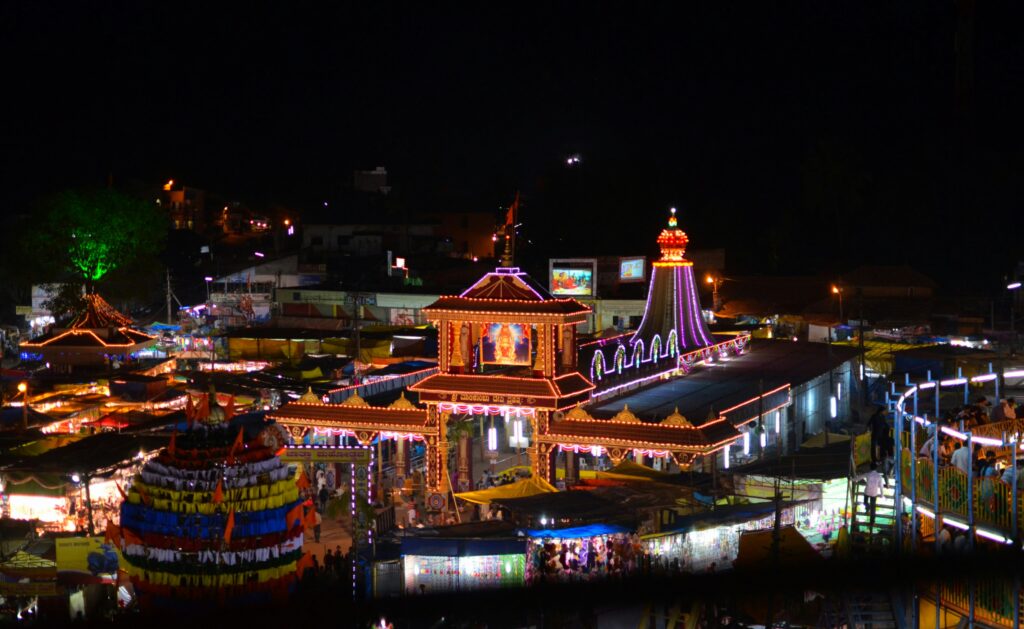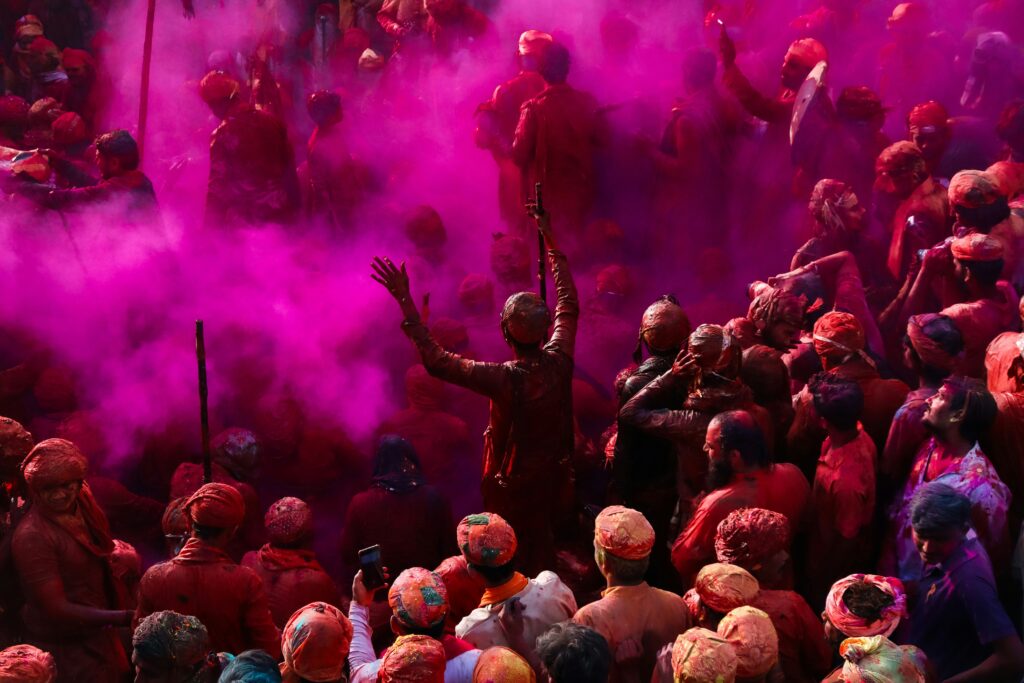Festivals in India are not merely occasions for celebration; they are profound expressions of the nation’s cultural, spiritual, and social fabric. Rooted in ancient traditions and evolving through centuries, these festivals serve as vital threads weaving together the diverse tapestry of Indian society. Their significance extends beyond rituals, encompassing aspects of unity, heritage, spirituality, economy, and environmental consciousness.

1. Cultural Unity Amidst Diversity
India’s vastness is mirrored in its multitude of cultures, languages, and traditions. Festivals act as unifying forces, transcending regional and linguistic differences. For instance, Holi, the festival of colors, is celebrated with equal fervor across various communities, symbolizing the triumph of good over evil and the arrival of spring . Similarly, Diwali, the Festival of Lights, marks the return of Lord Rama to Ayodhya and is observed with grandeur across the country . These celebrations foster a sense of belonging and collective identity among the people.
2. Preservation of Traditions and Heritage
Festivals are custodians of India’s rich heritage. They are steeped in rituals, music, dance, and art forms that have been passed down through generations. The Ramlila performances during Navaratri, depicting episodes from the Ramayana, are a testament to this cultural continuity . Such practices ensure that traditional arts and customs are preserved and appreciated by future generations.
3. Spiritual and Religious Significance
India’s festivals are deeply intertwined with spirituality and religion. They provide individuals with opportunities to reconnect with their faith, seek blessings, and reflect upon moral values. Durga Puja, for example, celebrates the victory of the goddess Durga over the buffalo demon Mahishasura, symbolizing the triumph of good over evil . These festivals reinforce ethical principles and spiritual teachings, guiding individuals in their daily lives.
4. Social Cohesion and Community Bonding
Festivals serve as platforms for social interaction and community bonding. They bring together people from various walks of life, fostering a spirit of camaraderie and mutual respect. The Bastar Pandum festival in Chhattisgarh, for instance, showcases tribal traditions and promotes social harmony . Such communal celebrations bridge gaps between different social groups, promoting inclusivity and understanding.
5. Economic Impact and Livelihoods
The economic significance of festivals is profound. They stimulate various sectors, including retail, hospitality, and tourism. Diwali, for example, sees a surge in the sale of lights, firecrackers, and sweets, boosting local economies . Additionally, artisans and craftsmen find opportunities to showcase their products, leading to increased employment and income generation during festival seasons.
6. Environmental Awareness and Ecological Balance
Many festivals in India emphasize the importance of nature and the environment. Makar Sankranti, for instance, celebrates the harvest season and encourages the consumption of seasonal produce. Similarly, Chhath Puja involves worshipping the Sun God near water bodies, highlighting the significance of clean water and environmental conservation . These festivals instill a sense of responsibility towards nature and promote sustainable practices.
7. Reflection of Societal Values and Morals
Festivals often encapsulate the core values and morals upheld by society. They narrate stories of sacrifice, righteousness, and devotion, serving as moral compasses for individuals. The burning of effigies of Ravana during Dussehra symbolizes the eradication of evil and the celebration of virtue . Such narratives reinforce societal norms and ethical conduct.
8. Platforms for Artistic Expression
Festivals provide a stage for various art forms to flourish. Dance, music, theater, and visual arts find expression during these times, allowing artists to showcase their talents. The grandeur of Durga Puja pandals in Kolkata, adorned with intricate designs and themes, exemplifies the fusion of creativity and devotion . These artistic endeavors not only beautify the surroundings but also promote cultural tourism and appreciation.
9. Promotion of National Integration
In a country as diverse as India, festivals play a crucial role in promoting national integration. They bring together people from different regions, religions, and communities, fostering a sense of unity and patriotism. The celebration of festivals like Independence Day and Republic Day, though not religious, instills a collective national pride and reinforces the values enshrined in the Constitution.
10. Educational Opportunities
Festivals serve as educational tools, imparting knowledge about history, mythology, and cultural practices. Schools and institutions often organize events and activities centered around festivals, providing students with hands-on learning experiences. The enactment of Ramlila during Dussehra, for example, offers insights into ancient texts and traditions, making learning engaging and interactive.
Conclusion
Festivals in India are far more than mere occasions for revelry; they are integral to the nation’s identity and progress. They embody the spirit of unity in diversity, preserve cultural heritage, promote social harmony, and contribute to economic and environmental well-being. As India continues to evolve, the essence of its festivals remains a testament to the enduring values and traditions that bind its people together. Embracing and celebrating these festivals ensures that the rich tapestry of Indian culture continues to thrive for generations to come.
for more
